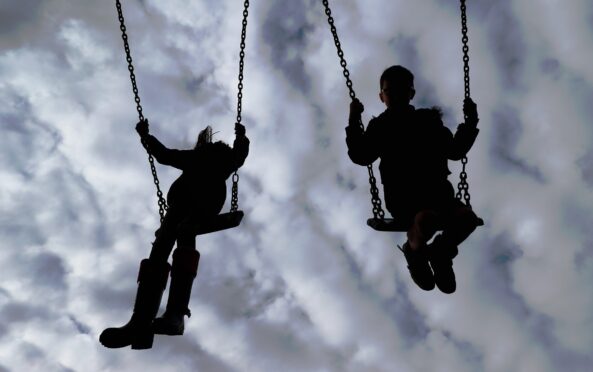
Mothers are worrying about whether to continue with pregnancies as families struggle against grinding poverty caused by Universal Credit’s two-child cap.
A shocking new report compiled from the experiences of a thousand Scots families trapped in two-child limit poverty found some are skipping meals so their children can eat.
Experts are now begging the government to axe the limit and review Universal Credit to pull half a million kids out of poverty. If the policy was scrapped, families would be better off to the tune of almost £3,500 per additional child.
Keir Starmer’s government has so far refused to step in and scrap the two-child limit, and in July suspended seven MPs who voted against them. He has pointed instead to his new child poverty taskforce and plans to introduce free breakfast clubs in primary schools.
The report Every Penny Counts, The Struggle To Survive, compiled for social housing giant the Wheatley Group, reveals vulnerable families suffering worst of all, with school trips, uniforms and attending sporting activities no longer affordable.
Even working families are struggling to provide the basics for their children, with pressures over ensuring they have enough to eat and keeping them warm through this winter causing stress and depression.
Report author, sociologist Dr Tommy Kane of Unity Consulting Scotland, said: “Our findings make a compelling case for the abolition of the two-child cap. Child poverty and the state’s role in entrenching it is a deep stain on our society.
“The two-child limit created a set of conditions which hold children back. Their basic needs are not being met, let alone them enjoying treats or stimulating experiences. Families told us their kids are missing out and living isolated lives. They are living, quite literally, a day at a time in order to survive.”
Dr Kane said the Labour government has a chance to pull thousands of children out of the poverty trap when they present their first budget on October 30.
He said: “Whether the government abolishes the two-child limit is a litmus test I hope they do not fail.”
The report found around 86 per cent of parents skipped meals so their children could eat. Over 82 per cent of families desperately needed clothes and shoes. The effect of the two-child limit has even had families wondering whether they could afford to have more children.
One mother said: “Our finances were a big question on whether to continue with pregnancy or not, if I’m honest.”
One dad said: “You have to plan wisely. You can’t just do things off the cuff. You need to think, do I need this bit of clothing? Can we afford these toys? Can we afford this take away?”
A mother said: “I try my best. The money for my first and second children supports the third one. It is hard, but we don’t have a choice.”
A father said: “I constantly check when my next payday is. I feel as if every other day I’m checking to make sure I’ve got enough to cover the gas, electricity, daily stuff like bread and milk and tuck for the kids for school. Luxuries are a no-go.”
Others relied on food banks and clothing grants from the local authority, and all worried about energy bills.
One pregnant mother worried about being able to eat more than one meal a day. Over 64 per cent used food banks and 75 per cent were “really struggling” to provide the absolute basics for their children.
Mental health issues and depression were rife amongst parents due to the anxiety of trying to juggle budgets.
Children are missing out because parents cannot afford sending them to sports clubs or football. As a result, parents feel they are failing their kids with 70 per cent unable to pay for sports of after-school activities.
One dad said: “My sons had to give up their karate classes. After Covid, I just couldn’t manage to pay for their courses.”
Another parent said: “We don’t go to soft play even though the kids want to. We go to the park instead because that doesn’t cost anything.”
Almost 85 per cent said their children don’t get holidays. Almost 83 per cent had crippling debts. One mum was left in debt to the NHS dentist after her husband worked a few extra hours overtime and it affected their access to free treatment because of Universal Credit rules. She said: “I would normally get free treatment, but after my husband worked a few extra hours overtime, I was told I no longer qualified.”
Mental health issues are rife because of the debts families suffer, with the five-week waiting time to make a Universal Credit claim blamed for council tax arrears.
Dr Kane said the effects of poverty left kids feeling socially excluded from their peers.
He said: “This is a punitive system which entrenches poverty even when evidence shows it affects the quality of life, educational attainment and future prospects of our youngest and most vulnerable citizens. Almost 90 per cent agreed their mental health is being negatively affected.”
Satwat Rehman, CEO of One Parent Families Scotland said; “This policy is a stark reminder that economic austerity often targets the most vulnerable, trapping larger families in poverty and stripping children of their right to a fair start in life.
“It sows the seeds for long-term inequality. Immediate action in the UK budget to abolish the two-child limit is essential to prevent further harm.”
Erica Young of Citizens Advice Scotland said: “This is an extremely damaging policy which devastates so many of the families who come to us for help.
“It penalises the parents of larger families but in fact those who suffer the most are the children.”

Enjoy the convenience of having The Sunday Post delivered as a digital ePaper straight to your smartphone, tablet or computer.
Subscribe for only £5.49 a month and enjoy all the benefits of the printed paper as a digital replica.
Subscribe © Supplied
© Supplied